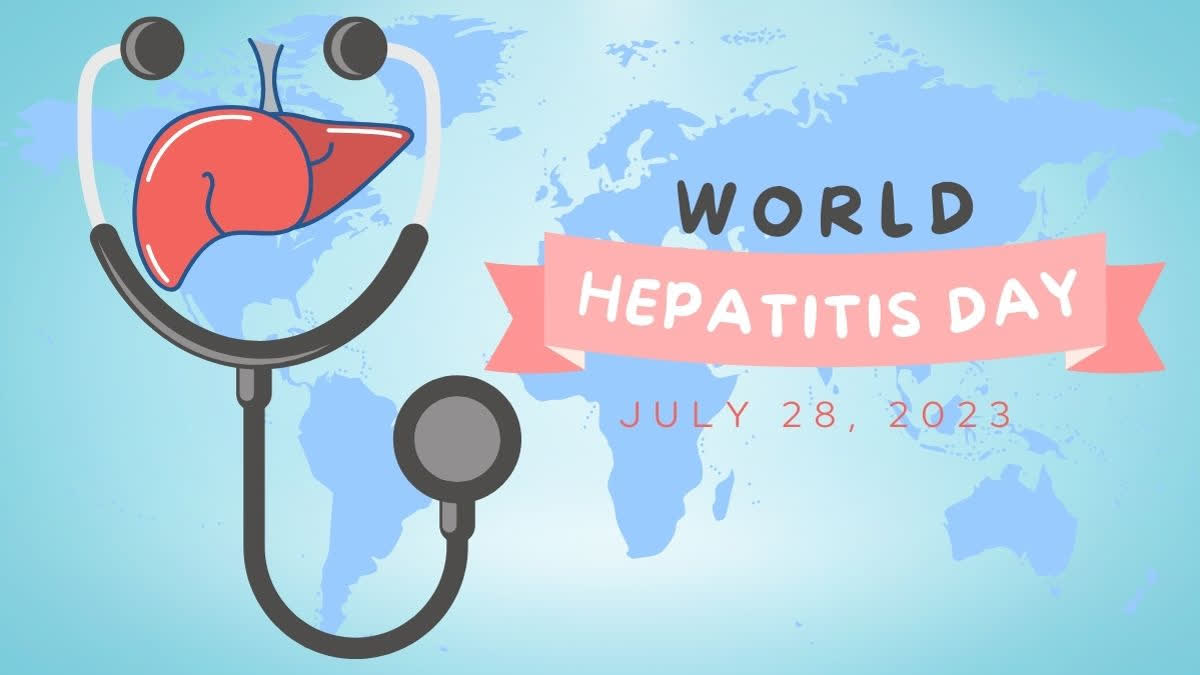Hyderabad: Hepatitis is an infection of the liver which results in inflammation, and there are five types of hepatitis categorised as Hepatitis A, B, C, D and E. Without proper diagnosis and treatment in time, the side effects of hepatitis gradually weaken the liver and after a period, the liver stops functioning, causing liver failure. World Hepatitis Day is observed on July 28 every year, to make people aware of the disease and its serious effects on the liver across the globe. In the year 2023, World Hepatitis Day is being observed around the theme "One Life, One Liver".
Neglect can further damage the liver, especially if hepatitis B and C are not detected in time and treated properly, it can lead to liver cirrhosis or liver cancer. Experts state that liver infections that last for less than six months are considered acute, and infections lasting more than six months are considered chronic infections.
Hepatitis A and E: Contaminated drinking water and unsanitary food are the main causes of hepatitis. Hepatitis A and E cause less liver damage than hepatitis B and C. It can be prevented by following a balanced diet and proper treatment.
Hepatitis B and C: Hepatitis B and C cause severe liver damage. The virus can be transmitted to other healthy people through blood transfusions, sharing items used by an infected person such as toothbrushes and razors, etc. On the other hand, people who inject drugs or have unprotected sex are at a higher risk of contracting hepatitis B and C.
Hepatitis D: Generally, if a person is infected with hepatitis B and C, the risk of contracting hepatitis D is also higher. In the case of hepatitis D, the inflammation in the liver persists for a long time.
Here are the severe symptoms of all five types of hepatitis, which are almost the same;
- Abdominal pain.
- Frequent indigestion and diarrhoea.
- Jaundice, yellowing of the skin, nails and eyes.
- Nausea and vomiting.
- Loss of appetite and persistent weight loss.
- Fever.
- Feeling tired without physical or mental exertion.
- Dark-yellow coloured urine.
- Joint pain.
If you experience any of the above symptoms, you should consult a doctor. An IgM antibody test is used to detect hepatitis A and E. DNA levels are tested to detect the hepatitis B virus. So, RNA tests and genotyping tests are done for Hepatitis C. Apart from this, liver function tests, CBC, and kidney function tests are also done. Types of treatments for the categories of Hepatitis are:
- Hepatitis A and E: In most cases of hepatitis A, the body recovers on its own, but the patient should follow the doctor's advice. In exceptional cases, patients have to be hospitalized due to persistent vomiting and diarrhoea or abnormal physical conditions. Treatment for Hepatitis E is similar to Hepatitis A, but pregnant women are at a higher risk of Hepatitis E. In such cases, they have to be medically monitored.
- Hepatitis B: Infection with this virus can also turn chronic; in some cases, the problem can continue for life. If the hepatitis B infection persists for more than 6 months, it is called chronic hepatitis B. Injections and tablets are used to treat this infection. Despite this, the recovery rate for hepatitis B is very low. The patient is monitored every three months and their medication can be continued for life. Hepatitis B can lead to liver cancer or liver cirrhosis, but this condition can be prevented by taking the right medication as advised by the doctor.
- Hepatitis C: With the availability of new drugs, it is now possible to treat hepatitis C. The success rate of these drugs is around 98 per cent and side effects are negligible.
- Hepatitis D: Very few cases of Hepatitis D occur in the country. Medications are available to treat hepatitis D.
